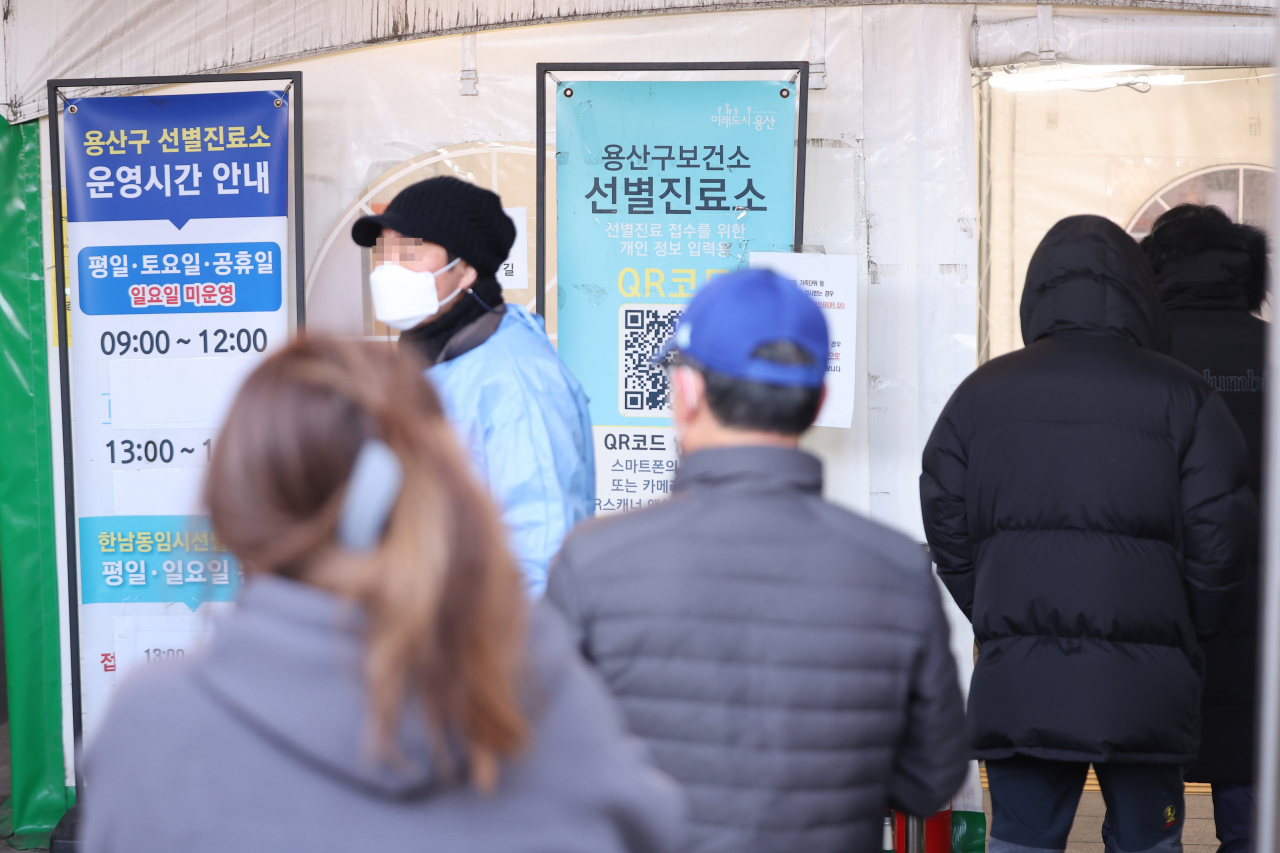 |
Pedestrians stand in line to receive COVID-19 tests at a testing center in Yongsan, Seoul, Monday. (Yonhap) |
Omicron subvariant XBB.1.5, which has spread rapidly within the United States, already arrived in Korea last month, authorities confirmed Monday, raising concerns over the spread of the strain believed to have resistance against updated vaccines.
"XBB.1.5 variant has been detected in the country on Dec. 8, 2022. So far, a total of 13 XBB.1.5 cases have been confirmed, including six cases in Korea and seven cases from overseas,” the Korea Disease Control and Prevention Agency said.
That XBB, a recombinant of the BA.2.10.1 and BA.2.75 sublineages, entered Korea in October last year was confirmed earlier, but XBB.1.5 cases had not been counted.
XBB.1.5 is a subvariant of XBB, which was derived from BA.2, known as "stealth omicron." As one of the most recent omicron subvariants, XBB.1.5 has recently spread at an alarming rate in the US with its high ability to evade immunity.
According to the US Centers for Disease Control and Prevention on Monday, the XBB.1.5 subvariant accounted for 21.7 percent of all COVID-19 infections there as of Dec. 24, and then nearly doubled in a week to reach 40.5 percent of total COVID-19 cases as of Saturday.
The Korea Centers for Disease Control and Prevention said that as of Dec. 24, only 5.7 percent of the COVID-19 cases in Korea were of subvariants, including XBB.1.5, but there is a possibility that XBB.1.5 will become dominant within a short period, as it has in the US.
Concerns are growing as researchers at Columbia University recently announced that XBB subvariants have resistance against updated vaccines as well as Evusheld, a monoclonal treatment for COVID-19.
Meanwhile, the government is tightening quarantine measures for entrants, widening the focus from mainland China to include Hong Kong and Macau.
Entrants departing from Hong Kong and Macau will also be subject to mandatory COVID-19 tests starting Saturday. Visitors must receive a PCR or rapid test before entering the country and fill out the Q-code questionnaire that asks about recent travel history and symptoms. COVID-19 tests after entering the country will be conducted only for those with symptoms.
On Monday, which was the first day of strengthened quarantine measures for entrants from China, 61 out of 309 short-term visiting foreigners who came from China have tested positive. The government has prepared quarantine facilities that can accommodate up to 100 people, and plans to secure additional spare facilities in Seoul, Gyeonggi Province and Incheon.
The number of new COVID-19 cases in Korea as announced Tuesday for the 24 hours of Monday was 81,056, recording over 80,000 on the day for four weeks in a row. The number of critically ill patients marked 620, maintaining over 600 for three consecutive days. The day's death toll was 29.





![[Herald Interview] 'Trump will use tariffs as first line of defense for American manufacturing'](http://res.heraldm.com/phpwas/restmb_idxmake.php?idx=644&simg=/content/image/2024/11/26/20241126050017_0.jpg)
![[Health and care] Getting cancer young: Why cancer isn’t just an older person’s battle](http://res.heraldm.com/phpwas/restmb_idxmake.php?idx=644&simg=/content/image/2024/11/26/20241126050043_0.jpg)
